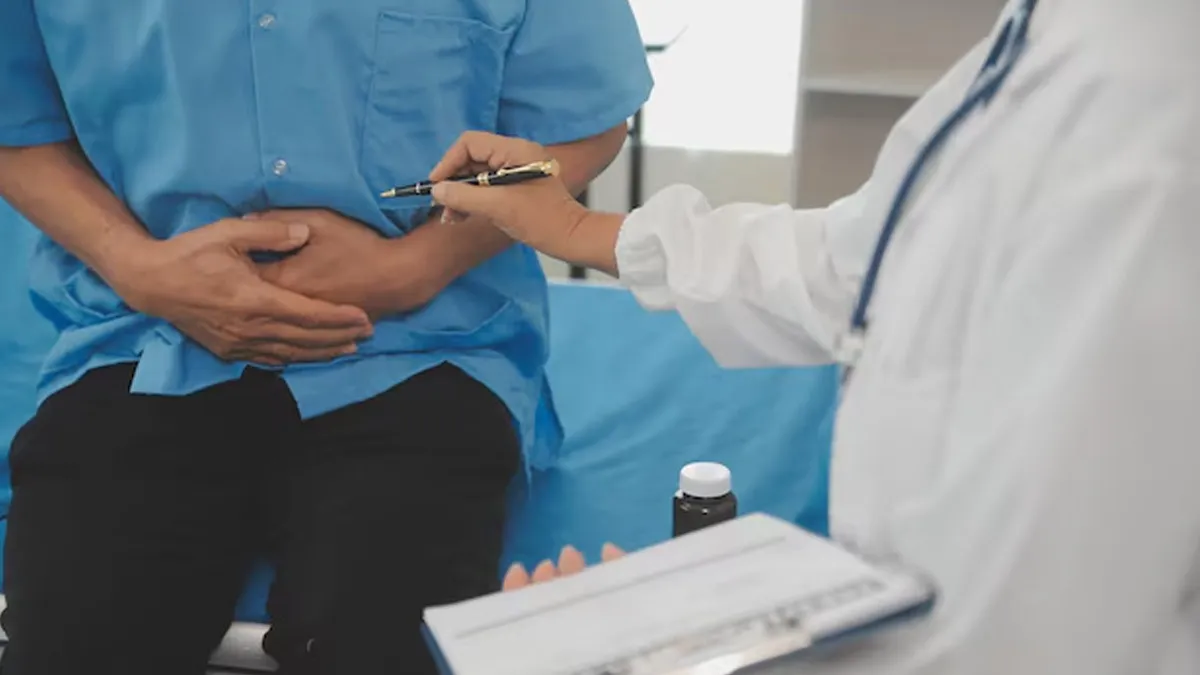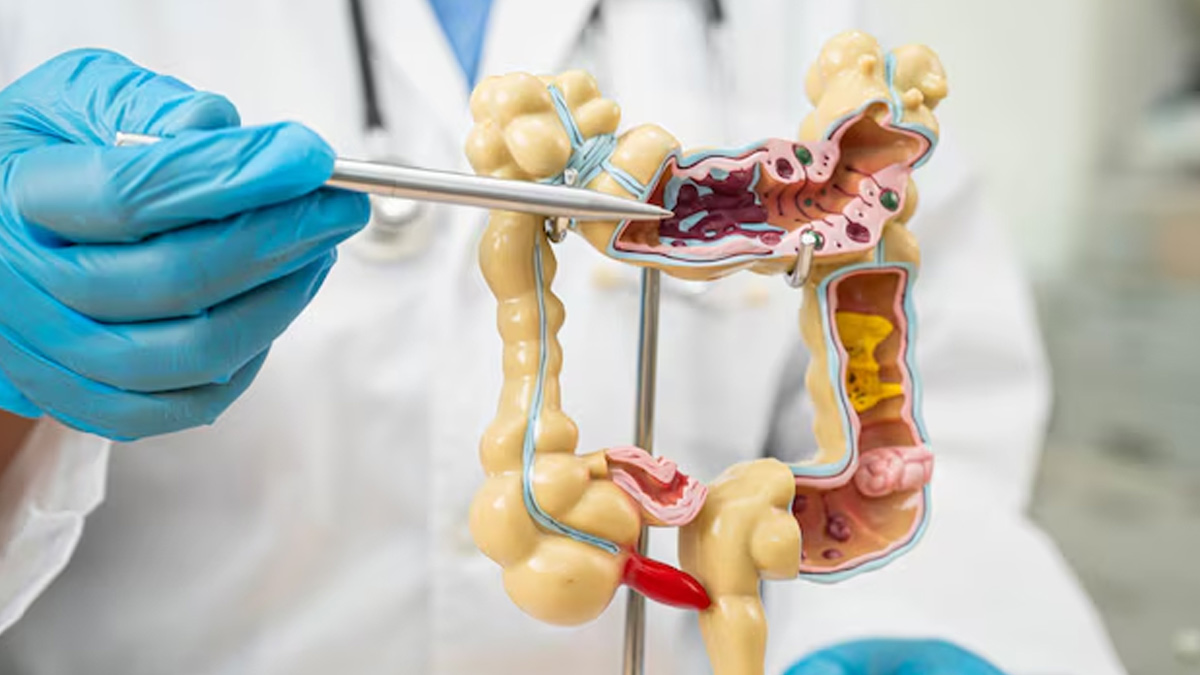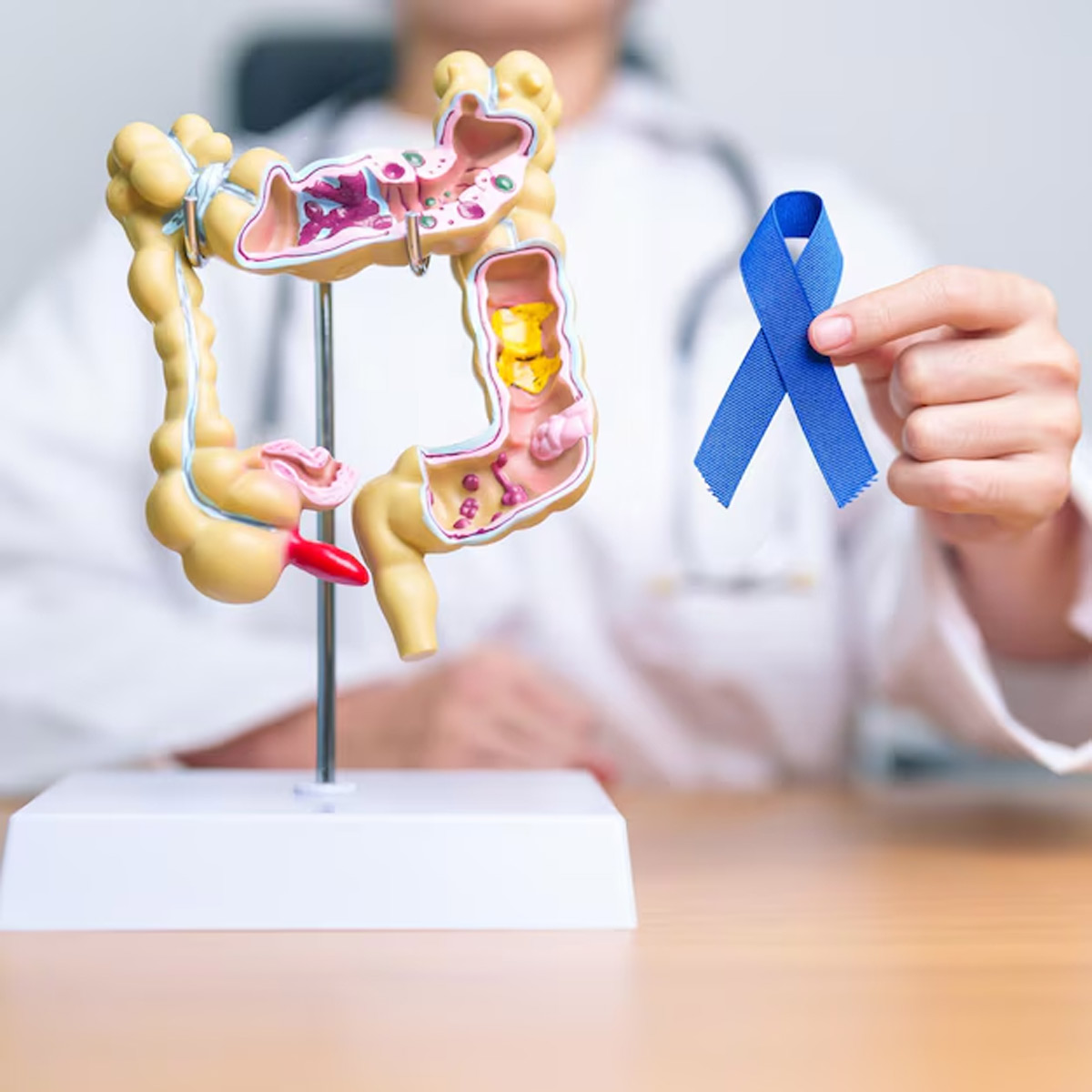
If you're in your 30s or 40s, you might think it's too early for colorectal cancer screening. While it's generally recommended from age 45, those with certain risk factors may need screening earlier.
Table of Content:-
According to Dr Amit Upadhyay, Senior Consultant – Oncology and Haematologist at PSRI Hospital, Delhi, colorectal cancer is one of the most common cancers worldwide, and early detection plays a crucial role in successful treatment. Therefore, if you're young but suspect an increased risk, it's always better to get early checkups and consult a doctor about your options.
Also Read: Colorectal Cancer: Expert Explains How to Detect Early Symptoms and Take Preventive Action
Early Colorectal Cancer Screening In Young People

As per a 2023 study published in the journal Hematology/Oncology Clinics of North America, colorectal cancer rates have declined in adults over 50 due to increased screening and lifestyle changes. But at the same time, they have risen in those under 50, from 8.6 per 100,000 in 1992 to 12.9 per lakh in 2018. Early-onset colorectal cancer now accounts for 10–12% of cases, prompting research into its causes, risk factors, and screening strategies.
Dr Upadhyay says, “While screening typically begins at a certain age, individual risk factors may necessitate earlier testing. For individuals with no additional risk factors, colorectal cancer screening is generally recommended starting at age 50. However, if there is a strong family history of colorectal cancer, screening should begin earlier, typically around age 40.”
Additionally, if a person experiences altered bowel habits, unexplained weight loss, or has a personal or family history of multiple polyps, early screening should be considered, regardless of age. Smokers are also advised to undergo screening earlier due to their increased risk.
Different Screening Methods For Detecting Colorectal Cancer

There are several screening methods available for detecting colorectal cancer:
- Colonoscopy: A flexible tube with a camera is inserted into the colon to detect polyps or abnormal growths. This is the most comprehensive and effective screening test.
- Sigmoidoscopy: Similar to a colonoscopy but focuses on the lower part of the colon.
- Faecal Occult Blood Test (FOBT) or Faecal Immunochemical Test (FIT): These tests check for hidden blood in stool, which may indicate the presence of cancer or polyps.
- Stool DNA Sampling: This test detects DNA mutations in stool samples that may be associated with colorectal cancer.
- CT Colonography (Virtual Colonoscopy): A non-invasive imaging test that provides detailed pictures of the colon.
Also Read: Dietary Factors That Can Influence The Risk Of Bowel Cancer
Risk Factors That Should Prompt A Screening

Certain factors increase the risk of colorectal cancer, warranting earlier screening. These include:
- Family history of colorectal cancer or multiple polyps
- Chronic immunosuppression (e.g., due to organ transplants or long-term steroid use)
- History of Human Papillomavirus (HPV) infection, which increases the risk of anal and colorectal cancer
- Smoking, which has been linked to an increased risk of colorectal cancer
- Diet high in red meat and low in fibre, which contributes to the development of polyps
- Unexplained weight loss and persistent digestive symptoms, such as constipation, diarrhoea, or changes in stool shape
What Should Young People Expect During Their First Colorectal Cancer Screening?
“For those undergoing their first colorectal cancer screening, the experience will depend on the type of test chosen,” says Dr Upadhyay.
According to him, colonoscopy and sigmoidoscopy require bowel preparation, which involves consuming a special liquid to clear the intestines before the procedure. A sedative may be given to make the process more comfortable.
“During the procedure, a flexible tube with a camera is used to examine the colon. If polyps or abnormal growths are found, a biopsy may be performed. FOBT, FIT, and stool DNA tests are non-invasive and only require providing a stool sample for laboratory testing. CT colonography involves a scan of the colon and does not require sedation,” the doctor elaborates.
A Final Word
While early screening is a great way to detect or rule out colorectal cancer, it is crucial to take steps to reduce the cancer risk. Dr Upadhyay emphasises the importance of healthy lifestyle choices, including high-fibre diets, avoiding processed foods, limiting alcohol consumption, quitting smoking, and engaging in regular exercise. Maintaining a healthy weight is key, which can only be achieved with proper dietary habits and regular physical activity. If you’re in your 30s, it isn’t too late to start preparing for a healthier future.
Also watch this video
How we keep this article up to date:
We work with experts and keep a close eye on the latest in health and wellness. Whenever there is a new research or helpful information, we update our articles with accurate and useful advice.
Current Version